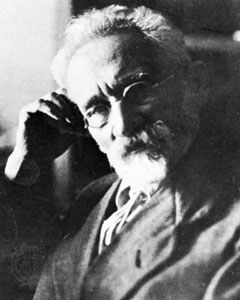The New Yorker ran Günter Grass's confession that he had been in the Waffen SS, as a teenager during the waning years of World War II. It was a good piece of writing.
Though it fed my paranoid fixation on how all (or most) older Germans were Nazis by either force, choice or momentum, I couldn't help thinking about my own grandfather who was of a similar age — eighteen — fighting around the same time as Grass. As fate and history would have it, my grandfather, a Dutch Jewish refugee fighting in a Dutch brigade in the British Army was wearing a very different uniform than Grass. I only know fragments of my grandfather's life at that time, it is not something he liked to talk about. But the basic narrative, being a young man caught up in history, scared shitless running through a bombed-out Europe, peeing your pants and shooting at whomever you happened to run into is no doubt similar for Jews, Nazis, Allies and Soviets alike.
Of course while my grandfather was advancing across northern France and the Netherlands, Günter Grass was retreating from the advancing Red Army in Central Europe. Are those superficial similarities or are they deep similarities? I generally have a very low tolerance for mitläufer or fellow travelers, all the little passive people who enable dictatorships and genocides across the world, but I'm not sure what to think. 
Grass's profound sense of guilt at having been part of not just the German army but of the Waffen SS (and an eager volunteer to boot) comes across loud and clear in the piece. At the same time his very declaration of guilt seems to me like a request for absolution. For each reason he righteously gives the reader why he shouldn't be pardoned, he seems to be asking the reader to say, "Well, you couldn't help it, you were young and everyone was drafted." I'm not interested in condemning Günter Grass but I am also not interested in giving him absolution.
I am fascinated by Germany in general and with Berlin in particular and go there is often as I can. I have good friends there and have to face the fact that I am culturally very Central European. Still when I am there I feel I can never get away from the looming sense of history, from my neurosis regarding my Jewiness in comparison to their Germaness and from the German neuroses, which complement mine all too well and tend to involve hang-ups on German guilt and Jewishness in general.
Perhaps that is part of the attraction.
Günter Grass eloquent but almost compulsive parsing and retelling of traumatic events sixty years in the past remind me all too well of my own upbringing among holocaust survivors of various stripes, only he lives with the burden of guilt, rather than with the other side of that coin.
Grass's obsessive-compulsive confession of guilt reminds me of a German friend of mine, who is my own age and has absolutely no rational reason to feel guilty, but seems to do so nonetheless. My reaction to Grass's essay, reminds me of the way I react when talking to Germans my own age about World War II (because when they find out I am Jewish they will start talking about it sooner or later) I feel their pain, but I am not interested in aiding their psychotherapy — or am I?
Germans and European Jews, it's like we are tied together by this trauma and destined to hobble along together for the forseeable future. Bloody miserable prospect.
On a related note, of course, I always prefer a confession of guilt to pretense of innocence. Kurt Waldheim who passed on to some other place last week, neither admitted to or made penance for the war crimes he very possibly committed, may he be remembered as an a*#hole by all. (Sorry G-d, I know I'm not supposed to rejoice at anyone's death but I can't help myself.)
Monday, June 18, 2007
Gunter Grass and his German Guilt Complex
Labels:
Europe,
Germans,
Grass,
Jews,
Nazis,
Neurotic Behavior,
Waldheim,
World War II
Subscribe to:
Post Comments (Atom)

No comments:
Post a Comment